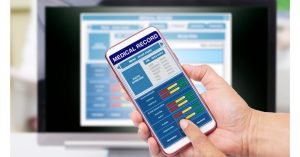Customize Surveys. Collect Feedback. Supercharge Your Customer Experience
Get 10x More Survey Responses Over The Industry Standard
Customer experience in healthcare refers to the sum of all interactions that patients have with healthcare providers and systems. It starts from the initial contact to follow-up care. Unlike general consumer experiences, healthcare customer experience is deeply rooted in trust, empathy, and effective communication. Mainstream customer experiences focus on satisfaction from product quality or service efficiency. Healthcare CX is focused on patient-centric satisfaction due to the sensitive nature of medical care. Here the quality of interactions can significantly influence patient outcomes and overall satisfaction.
Key Trends:
The landscape of customer experience in healthcare is evolving rapidly due to two primary factors:
- Increasing Patient Expectations: Modern patients are well-informed and demand more personalized and efficient services. The growing use of patient reviews and ratings has empowered people to choose healthcare providers more critically.
- Rise of digital tools and telehealth services: Digital tools, like telehealth services, online appointment booking, and electronic health records, have transformed patient care. These tools improve accessibility and streamline processes improving patient experience.
The Importance of Elevating CX in Healthcare
Enhancing the customer experience in healthcare is crucial for several reasons:
- Higher patient satisfaction and retention: A positive healthcare experience boosts patient satisfaction, which in turn increases patient retention. Satisfied patients are more likely to adhere to treatment plans and recommend the healthcare facility to others.
- Impact on hospital ratings and reimbursements: Patient feedback significantly affects hospital ratings. Since the ratings also determine the level of care by the staff, it can impact footfalls. Higher ratings not only attract more patients but also impact financial incentives and reimbursements from insurance providers and government programs.
Industry Leaders’ Insights
According to Deloitte’s research on elevating health care customer experience, there are several key practices that industry leaders follow:
- Personalized care: Tailoring medical care to individual patient needs significantly improves satisfaction. This includes everything from personalized treatment plans to individualized communication strategies.
- Transparent communication: Patients appreciate it when medical professionals offer a detailed understanding of their diagnosis, treatment options and expected outcomes.

Impact of Healthcare CX
Revenue impact
Research highlights that enhanced CX in healthcare directly correlates with financial growth. Healthcare providers with high patient satisfaction scores often see:
- Increased revenue: Satisfied patients drive higher patient volumes and revenue by recommending the service provider to others (high NPS scores).
- Cost savings: Efficient patient care can reduce operational costs. For instance, telehealth solutions can minimize the need for in-person visits, cutting down on operational costs.
Patient (consumer- centricity)
Maintaining consumer centricity means placing the patient at the center of all healthcare initiatives and decision-making processes. By focusing on patient needs and feedback, healthcare providers can create more effective and patient-friendly services, driving growth and patient loyalty.
6 Strategies to Improve Customer Experience in Healthcare
1. Communication and empathy
Effective communication and empathy are cornerstones of a positive customer experience in healthcare. Training staff to be more communicative and empathetic involves:
- Workshops and seminars: Regular training sessions can equip healthcare providers with soft skills, such as active listening and emotional intelligence.
- Mock-patient scenarios: Rehearsing real-life scenarios helps staff better understand patient concerns and respond appropriately.
2. Digital solutions
Several digital solutions can significantly improve customer experience in healthcare:
- Telehealth services: Remote consultations can reduce the need for in-person visits, making healthcare more accessible and convenient.
- Mobile Apps and online portals: These platforms allow patients to manage appointments, access medical records, and communicate with healthcare providers seamlessly.
- AI-based chatbots: These can provide 24/7 support, answer patient queries, and even triage cases to appropriate medical personnel.
3. CX management platforms
CX management platforms like Merren play a crucial role in analyzing and managing patient feedback.
- Centralize patient feedback: Gather and analyze feedback from various sources, offering a comprehensive view of patient sentiments.
- Generate real-time reports: Provide insights into patient satisfaction and areas needing improvement, enabling timely interventions.

4. Patient experience metrics
To measure the success of technical innovations, track key performance indicators (KPIs):
- Net Promoter Score (NPS): This metric measures patient willingness to recommend the healthcare provider to others.
- Patient Satisfaction Scores: Often gathered through surveys, these scores provide insight into patient perceptions of care quality and service.
- Readmission Rates: Lower readmission rates can indicate effective treatment and follow-up care, components of a positive patient experience.
5. Integration with existing systems
For effective customer experience management, integrating Merren with existing healthcare management systems is essential. This involves:
- Seamless data exchange: Keeping consistent patient data flows between different systems. Reducing redundancy to enhance data accuracy.
- Unified dashboards: Create centralized dashboards that healthcare providers can use to access all necessary information for better decision-making processes.
6. Actionable insights
Turning data into actionable insights is critical for continuous improvement. This involves:
- Identifying patterns: Analyzing feedback to identify recurring issues or trends that need addressing.
- Implementing Changes: Using insights to make informed changes in processes or policies, improving overall patient care.
Conclusion
CX in healthcare can benefit patient care and improve outcomes. This will positively impact reviews, feedback, revenue growth and innovative practices. Adding technological benefits can help professionals create a seamless experience for people. Use the latest CX platforms and integrate it with medical feedback systems to get a unified view of feedback and review responses. Sign up for a 14 day free trial with Merren. Every patient-based information with Merren is strictly confidential as in line with our privacy policy. If you are looking for customized services, get in touch with our team at this email address.
Customize Surveys. Collect Feedback. Supercharge Your Customer Experience
Get 10x More Survey Responses Over The Industry Standard
